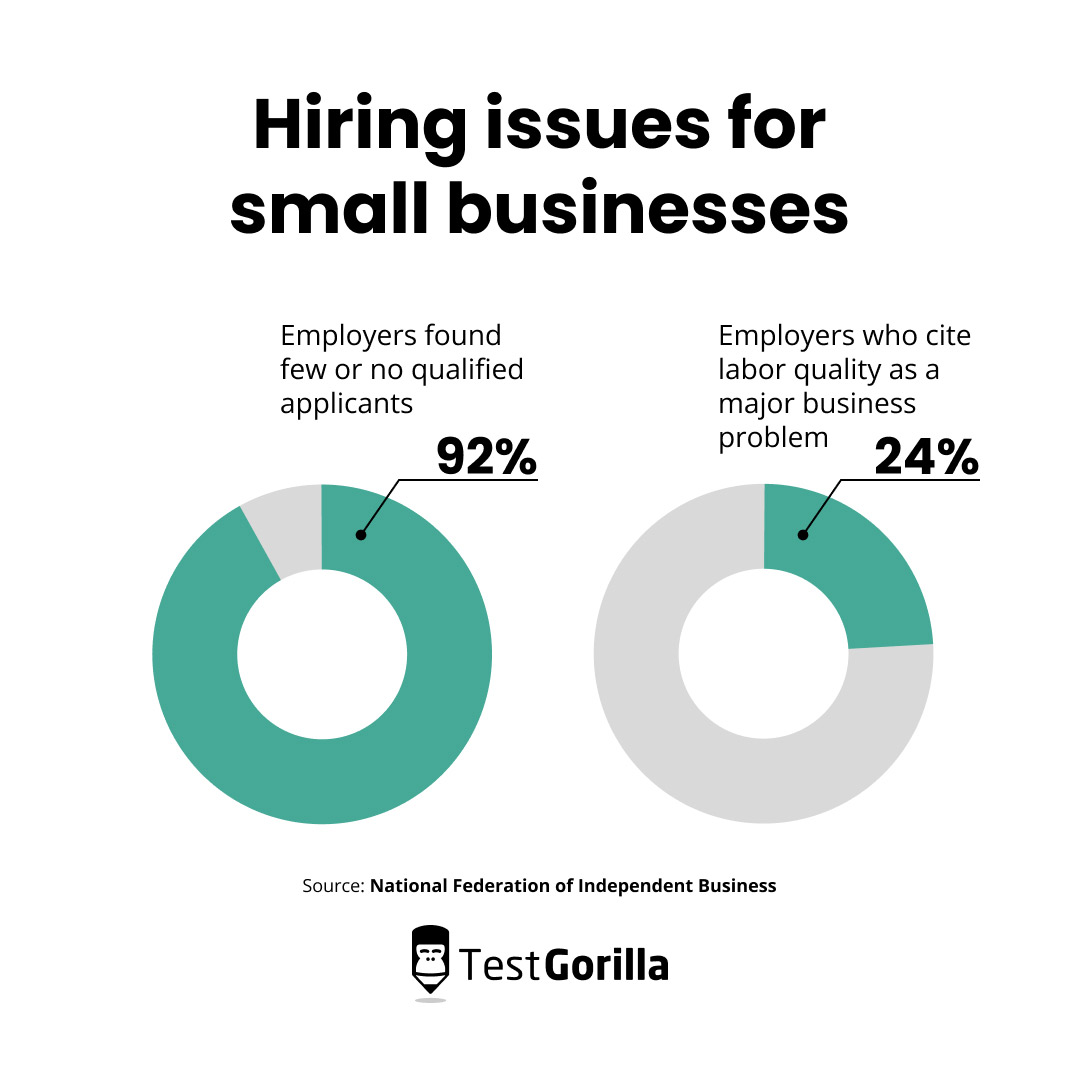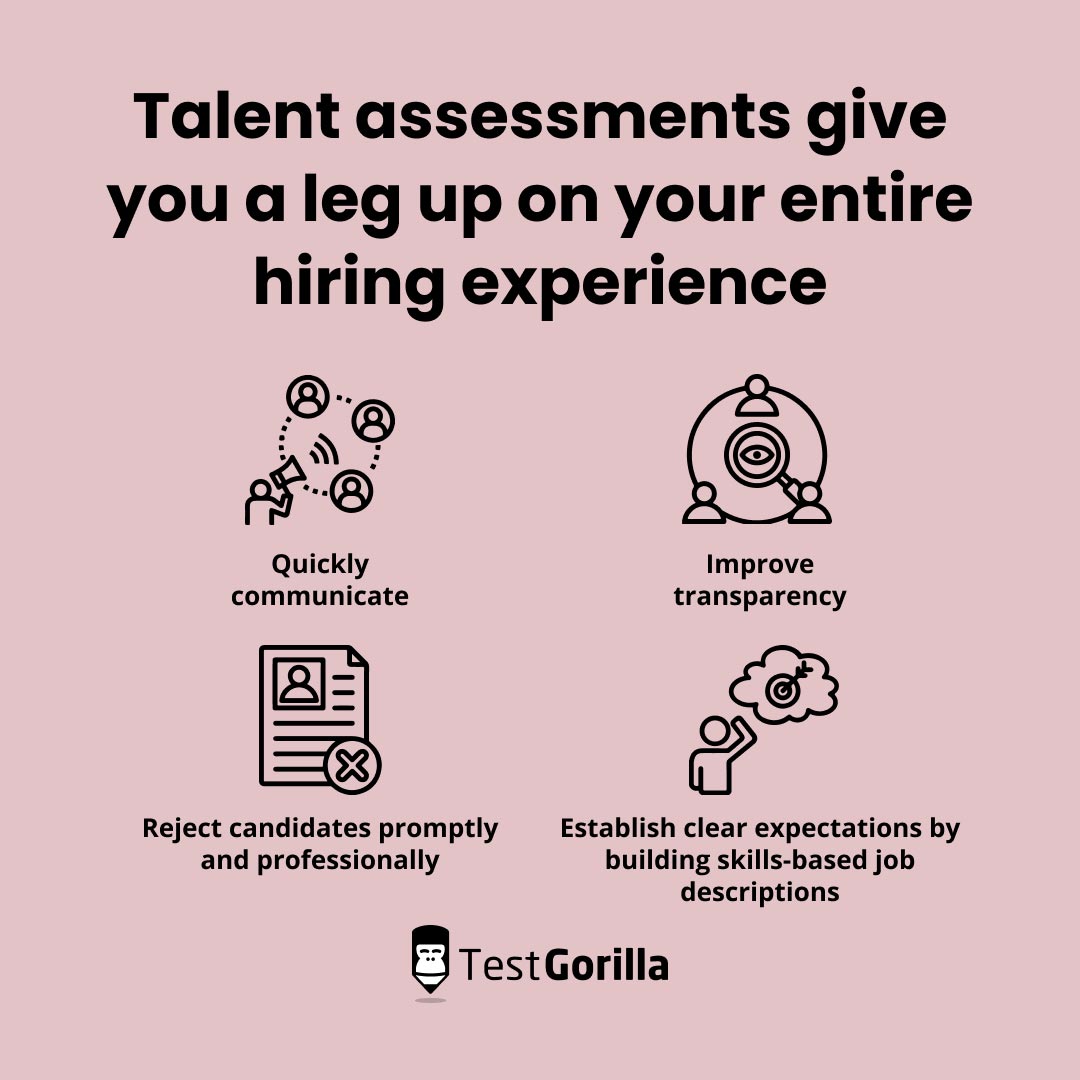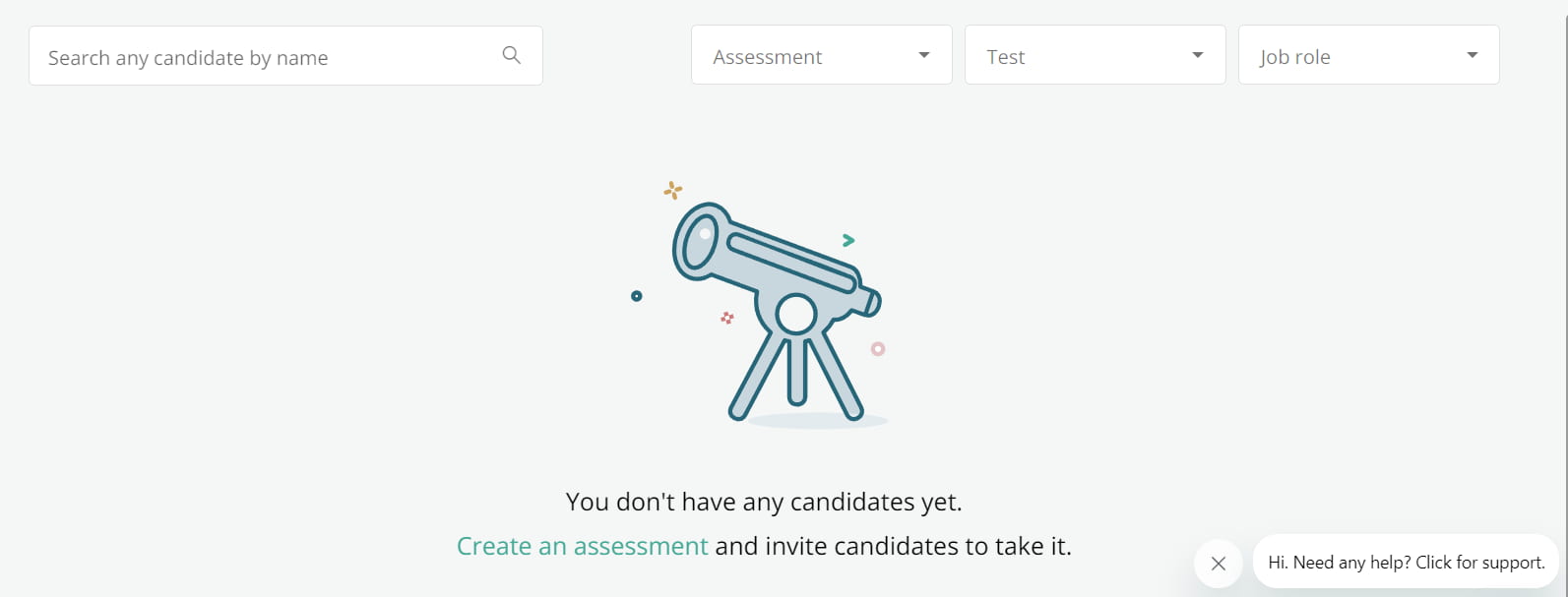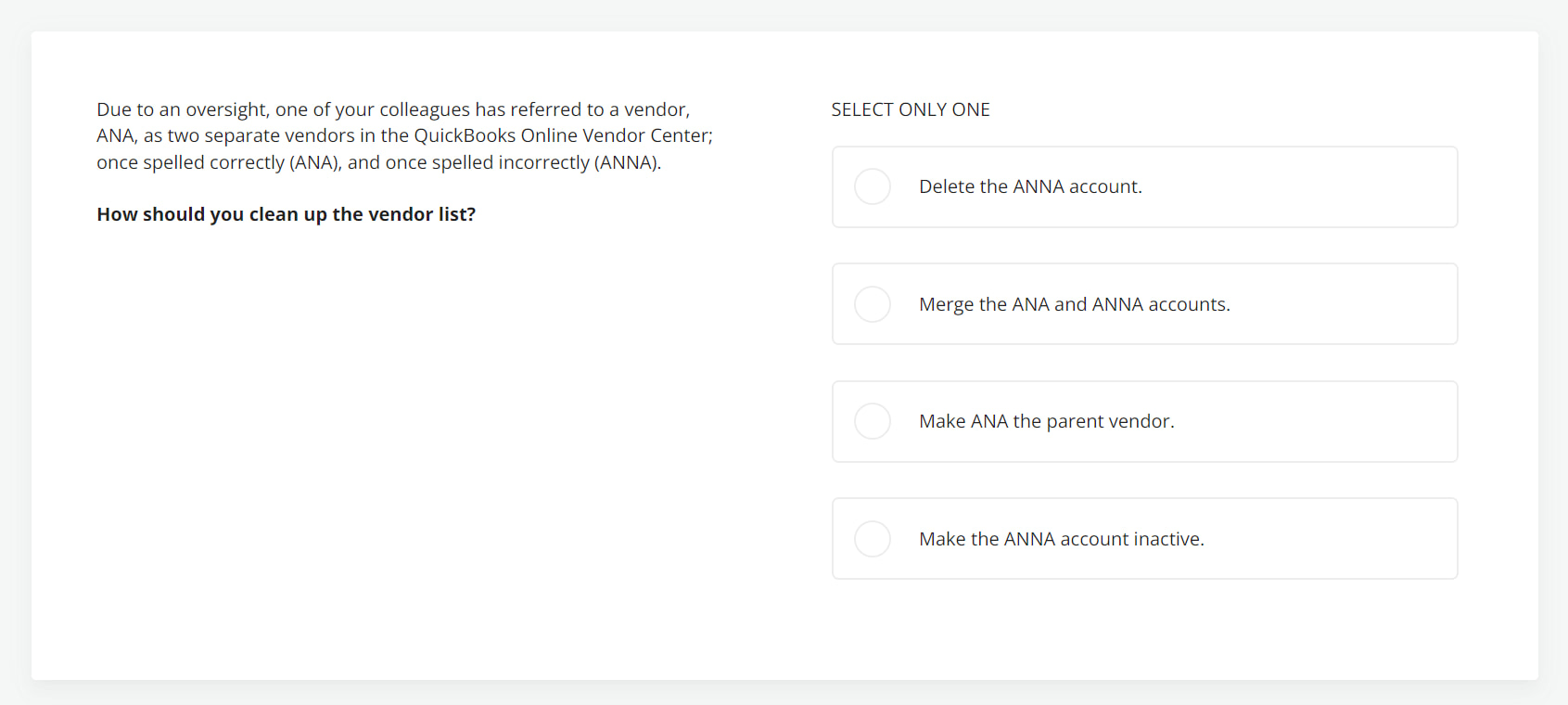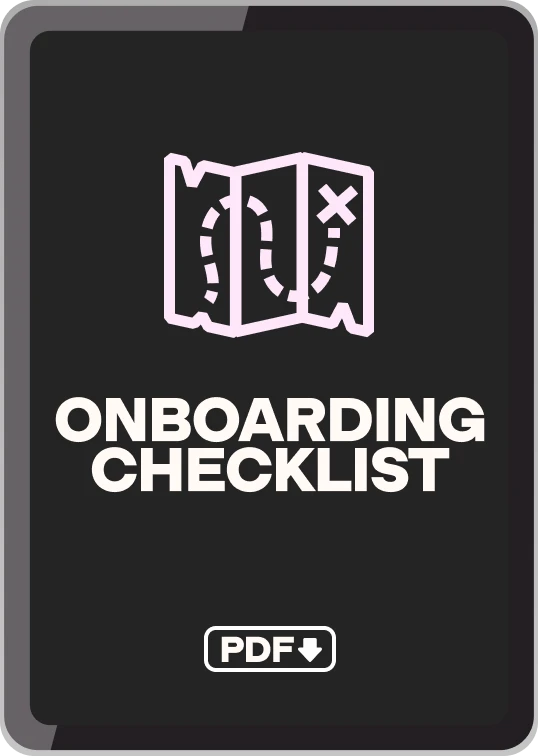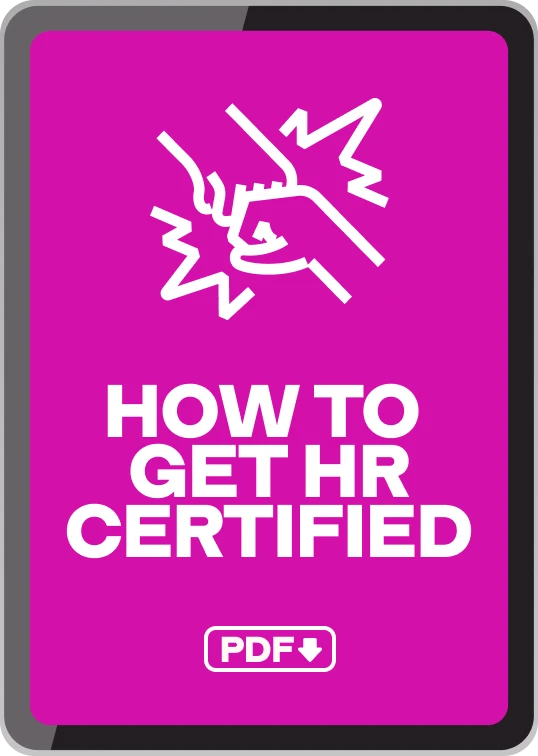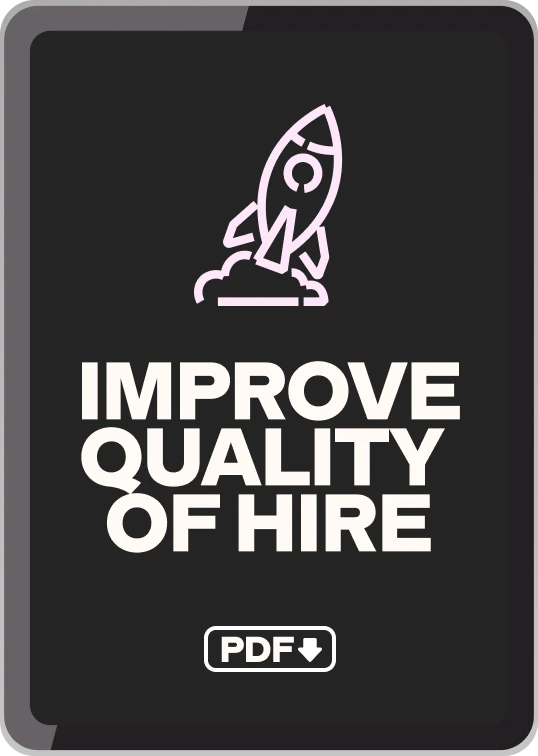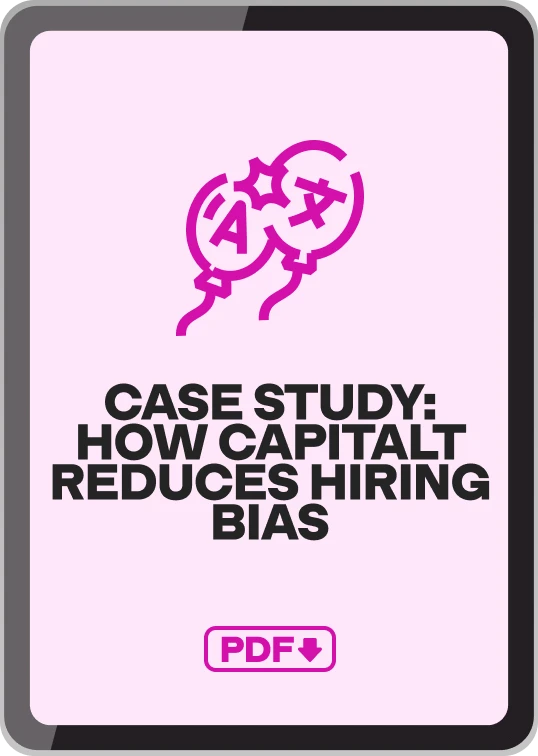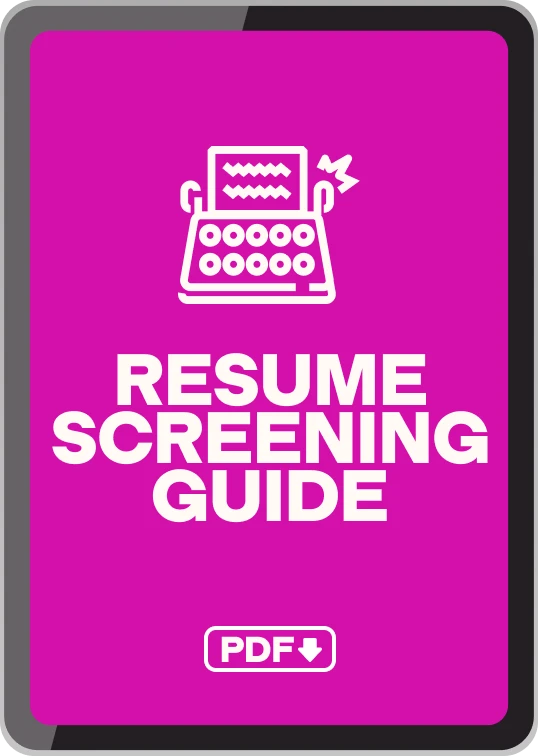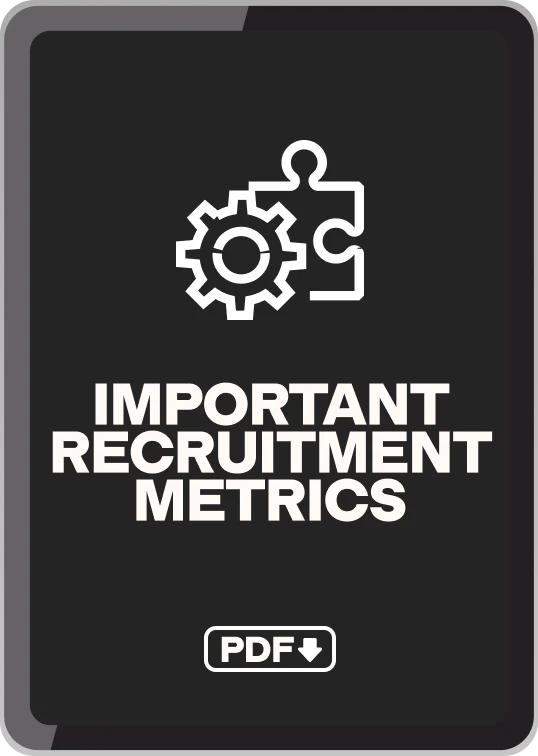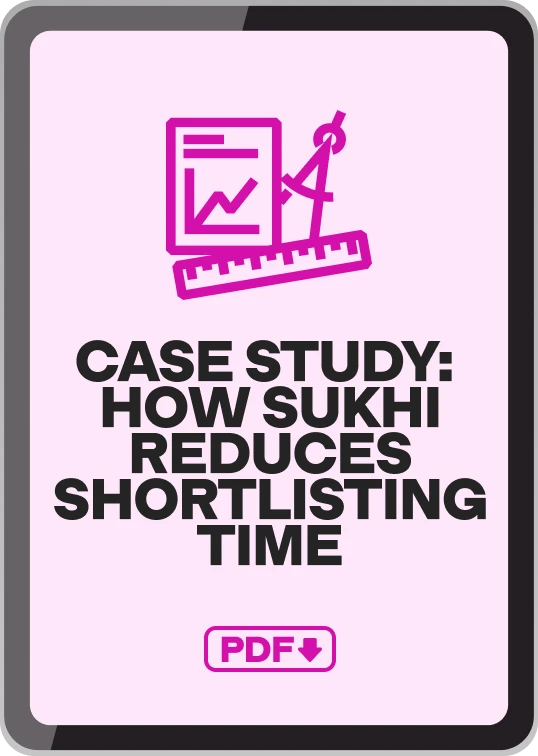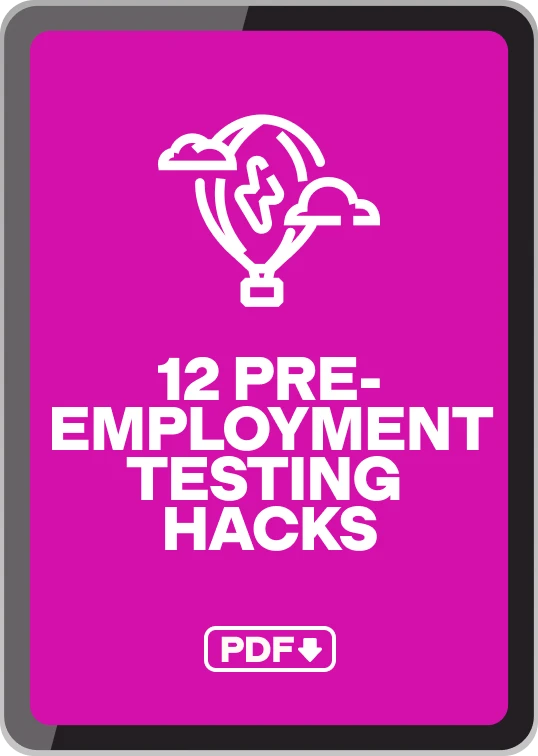Talent assessments for SMEs: Identifying versatile talent and standing out from the crowd
Small to mid-size businesses have a lot of competition when it comes to securing top talent.
They’re the most common type of business, accounting for 99.9% of all businesses in America, so they must compete with thousands of other companies for great candidates.[1]
Moreover, small businesses must contend with large enterprises when recruiting, and although SMEs tend to have decent HR budgets, they certainly don’t have the money to throw around that large companies do.
You can maximize your recruiting budget and stand out from the crowd with talent assessments for SMEs.
Using talent assessments for small and medium enterprises is a great way to alleviate hiring headaches. They widen your talent pool, reduce cost-per-hire, and boost employer branding.
This article discusses the benefits of using talent assessments for small and medium companies, plus the best practices to get the most out of them.
Table of contents
- What are talent assessments for SMEs?
- The benefits of talent assessments for SMEs
- How to get the most out of talent assessments: 8 best practices for SMEs
- 5 examples of SMEs succeeding using talent assessments to build a standout candidate experience
- Attract your ideal candidates with talent assessments for SMEs
What are talent assessments for SMEs?
Talent assessments for SMEs are hiring methods that help small businesses evaluate skills and tackle key challenges, such as finding qualified candidates in a competitive market and designing training programs.
These methods include skills tests, job samples, and structured job interviews.
Talent assessments and skills-based hiring are rapidly gaining popularity.
In 2024, 81% of companies used skills-based hiring. This is compared to 73% in 2023.
These assessments also suit many types of businesses, which is why talent assessments for enterprises are also common. Talent assessments are a simple, affordable way to keep up with large enterprises and the talent they attract.
The benefits of talent assessments for SMEs
Talent assessments for small and medium enterprises reduce cost-per-hire and find qualified applicants.
They also boost your employer branding and enable you to attract top talent who have thousands of potential opportunities.
Let’s explore these benefits and more.
Keeps you competitive and opens your talent pool
A tight job market is a huge challenge for SMEs because many great candidates apply to big-name brands.
One study found that 93% of HR professionals report few or no qualified applicants.
Securing top talent is a huge issue, but talent assessments for small and medium companies can help.
They give you a powerful edge against the competition:
68% of employees say they prefer hiring processes that include skills-based assessments
This number goes up to 82% for employees aged 25-34
Workers are attracted to companies that prioritize skills. A strategy including talent assessments helps your company give applicants what they want.
Reduces cost-per-hire
Expenses are an important factor for small and medium businesses. They don’t have large enterprises’ resources and must be mindful of hiring costs.
Talent assessments for SMEs make a large impact on hiring costs. Of organizations that used skills-based hiring in 2024, 78% reduced cost-per-hire.
There are two main reasons for this.
First, skills tests reduce time-to-hire through streamlined processes and automation, enabling HR professionals to spend their time on other tasks.
Second, assessing candidates’ skills reduces mis-hires. When 77% of companies struggle to find talent, each failed applicant is an opportunity cost for the company, the recruiter, and the team missing a member.
This cost reduction makes talent assessments an attractive option for even smaller companies, which is why talent assessments for startups are a rising trend.
Finds real skill and helps eliminate "warm body syndrome"
“Warm body syndrome,” or hiring just to fill a seat regardless of candidate quality, is common among SMEs.
It happens for several reasons, primarily due to the aforementioned budget issues and the struggle to find decent talent. Many companies end up settling for second best.
One study found that 92% of small businesses hiring or trying to hire found few or no qualified applicants.
Further, 24% of them identify labor quality as a major business problem, making it the most frequently identified issue.
A skills shortage only makes things worse.
Companies must upskill nearly half (44%) of workers to do their jobs effectively, which means that your current staff and potential hires could lack essential skills.
Talent assessments help you hire versatile talent and avoid mis-hires. They can even help inform and assist your upskilling programs.
Boosts employer branding and candidate experience
Small and mid-size businesses can’t compete on the same level with organizations with better budgets, better tech stacks, and more staff.
Large enterprises have the upper hand regarding candidate experience, but using talent assessments gives you a great boost.
Talent assessments help you stand out as a fair employer among other companies that, although bigger and more well-known, may not have the most stellar reputations.
For instance, Samsung, the multinational electronics company, received accusations that Jay Y. Lee, its executive chair, is a “nepo baby.” Jay has been scrutinized for several offenses, including bribery, but has allegedly received a pardon because of his connections.
Talent assessments for mid-size businesses show that you care about fair employment and focus on skills more than connections.
For more insights on this topic, read our article on improving employer branding.
Naturally increases diversity
Modern candidates, employees, and customers expect you to have a diverse and inclusive workforce.
It benefits your bottom line, too: Studies show that diverse mid-size businesses are 36% more likely to outperform their peers financially.[2]
However, many SMEs don’t have the time, effort, and funds to secure a designated employee to work on DE&I. Many SMEs operate locally and can’t leverage the same diversity as far-reaching companies.[3]
Talent assessments are a way to encourage inclusivity without a big budget or additional employees.
They increase diversity by reducing unconscious bias and enabling you to drop reliance on degree requirements, which filter out many diverse applicants.
They help you build an inclusive culture naturally before you’ve hired a DE&I expert or designed specific inclusive practices.
Enables you to hire workers with potential for leadership
Small businesses benefit from being able to hire workers that eventually develop into leaders.
Many small businesses may not have the resources and budget to vet and hire leaders. It could be more affordable and effective to develop a current employee.
Talent assessments for small businesses help you spot high potential (HiPo) candidates.
Candidates with great growth potential are impossible to spot by reviewing resumes, but tests that gauge leadership and collaboration skills, like our DISC test, can find them.
You can also use talent assessments to build leadership development plans, but we discuss that strategy below.
You can train more candidates into higher positions and offer learning opportunities, which is attractive to potential hires.
How to get the most out of talent assessments: 8 best practices for SMEs
Talent assessments for small and medium enterprises are powerful tools, but you must learn how to use them correctly.
Below, we look at how you can leverage talent assessments, including improving your employer branding and reducing mis-hires.
Strategies for using talent assessments for small businesses: A summary
Strategies | Description |
Leverage talent assessments to stay competitive | |
1. Widen your talent pool and access great candidates | Dropping reliance on resumes enables you to consider workers who don’t have professional certifications |
2. Give people what they want and boost candidate experience | Improving transparency and assessing skills gives people a hiring process they’re happy to be a part of |
3. Use your candidate database for future hiring initiatives | Evaluating candidates with talent assessments places them into a searchable database you can reference at any time |
Use talent assessments to optimize your hiring process | |
4. Assess candidates objectively and reduce mis-hires | Focusing on skills and competencies ensures you hire the ideal candidate for your open role |
5. Build an established skills-based process | Using talent assessments helps you build an organized, repeatable hiring process |
6. Integrate talent assessments with recruiting software | Integrating talent assessments with recruiting tech like candidate relationship management (CRM) systems gives you important insights and easy access to candidate information |
Take advantage of talent assessments to build a flourishing workforce | |
7. Boost your DE&I efforts naturally | Removing degree requirements and relying on assessments offers more opportunities for diverse candidates to break the glass ceiling |
8. Inform and assist development programs | Using talent assessments enables you to create effective learning programs and verify skills |
Leverage talent assessments to stay competitive
Let’s start with how talent assessments help small businesses stay competitive and attract the right talent.
1. Widen your talent pool and access great candidates
Talent assessments enable you to widen your talent pool and include thousands more qualified candidates in your search.
For example, if you’re evaluating candidates with skills tests, you don’t need to use resumes.
There are a lot of opportunities for bias in resumes.
Hiring managers could assume that a certain degree or amount of experience equates to a person’s skill level. However, people with the right skill set may be more qualified than people with many years of experience.
Here are a few ways resumes can hold bias:
Where someone went to college and the degrees they earned
Their total number of years of experience
Their work history in relevant industries and fields
Work gaps
Personal details, like their photo, gender, name, age, or race
Talent assessments let you look at objective skills rather than these factors that distract you from what’s important and narrow your available choices.
2. Give people what they want and boost candidate experience
Candidate experience is crucial in the modern era, but it could suffer in small businesses when you don’t have advanced automated tools, tight organization, and customization.
Talent assessments give you a leg up on your entire hiring experience. These tests enable you to:
Quickly communicate
Improve transparency
Reject candidates promptly and professionally
Establish clear expectations by building skills-based job descriptions
Many candidates also appreciate a fair, unbiased hiring process focusing on skills instead of degree requirements and work history.
Our report shows that 86% of candidates believe they’re more likely to secure their dream job when they can prove they have the right skills.
Read our full guide on boosting candidate experience for more information on this subject.
3. Use your candidate database for future hiring initiatives
Talent is in short supply, so it pays to watch every potential candidate. Even if you aren’t currently hiring, you may be in a few months, and it would be a shame to lose sight of a candidate forever.
Talent assessments enable you to maintain a database of candidates that’s easy to filter and search. This database is a goldmine of possible future candidates, especially with passive recruiting, which refers to attracting applicants not currently looking for a job.
Here’s what a candidate database in TestGorilla looks like.
It's empty (for now) because it's a new account. But as you can see, you can quickly search for candidates by name if you have a specific person in mind, but you can also filter the database by assessment, tests, or the job role they applied for.
It helps you quickly find “silver medalist” candidates from previous hiring efforts – especially when you must make a tough decision between several star applicants.
Use talent assessments to optimize your hiring process
Next, we’re going to look at the top methods to use talent assessments to build a more effective hiring process.
4. Assess candidates objectively and reduce mis-hires
Small businesses can’t afford to make costly mis-hires, and one of the biggest hiring concerns is labor quality. Let’s address both these problems.
Talent assessments for small and medium companies enable you to gauge skills and competencies so you can accurately determine candidate quality.
Here’s how to do it.
Say you’re hiring an accountant, and you send them your customized accounting assessment.
When a candidate takes our QuickBooks test, they work through slides similar to the above. They go through and choose answers using their knowledge of the subject, which directly translates to their skills.
After your candidates finish, you review the results from your dashboard:
From here, you shortlist applicants based on your benchmarks to find the most suitable ones. You can then view individual results to get deeper insights into each candidate.
This method enables you to objectively examine each candidate and determine quality confidently.
5. Build an established skills-based process
Many small businesses don’t have a standardized hiring process, which causes back-and-forth questions and hiring delays.
Talent assessments make building a structured, repeatable process easy because they leverage recruitment automation. They let you:
Send tests to candidates automatically upon application
Update applicants on their progress
Invite people to interviews
Send job offers
Send rejections
Also, because talent assessments enable you to look at job roles in terms of capabilities, you can get a firm idea of which skills your roles need.
They optimize the hiring process even further because you can zero in on exactly what your role requires.
6. Integrate talent assessments with recruiting software
Talent assessments do a lot on their own and easily integrate with third-party software for what they can’t do.
You can integrate talent assessments with recruiting software like applicant tracking systems (ATS) and CRM systems to improve quality and efficiency.
It organizes and optimizes your hiring process and enables easy scaling.
For example, you can access your candidate database from your CRM system to monitor high-priority candidates as they move through the hiring process.
This way, you don’t lose sight of quality candidates. Integration also enables you to gain great insights into the process and monitor key hiring metrics:
Time-to-hire
Applicants-per-hire
Cost-per-hire
Quality of hire
Retention rate
You can turn a few tools into an impressive, powerful tech stack with software integration.
Take advantage of talent assessments to build a flourishing workforce
Finally, we’re going to see how talent assessments contribute to a growing, thriving workforce.
7. Boost your DE&I efforts naturally
SMEs struggle to keep up with increasing diversity demands in the modern world, but talent assessments can help.
Here are actionable steps you can take to boost diversity with talent assessments:
Toss away resumes and applications
Use talent assessments to determine the skills needed for a role, then write skills-based job descriptions
Remove college degree requirements for every role you can
When you use talent assessments, there’s no need to put degree requirements or required years of experience in your job ads. And when you drop unnecessary requirements, you can attract and hire more diverse candidates.
These assessments also help you reduce the unconscious bias that usually crops up during resume screening.
For more insights and strategies, read our guide on inclusive hiring.
8. Inform and assist development programs
Career growth is important to small businesses.
Employers want employees with growing, developing skill sets and the increased employee retention that comes with professional growth.
You can use talent assessments to smoothly inform and assist development programs. Here’s an example scenario:
Test workers with skills tests to see if they’re ready for growth
Evaluate them with the same program to monitor skills growth as they develop
Assess them again at the end to verify their skills
These strategies make learning and development simple and data-driven so you can benefit from stronger employees and satisfy their desire for internal mobility.
5 examples of SMEs succeeding using talent assessments to build a standout candidate experience
Talent assessments for mid-size businesses provide companies with an effective way to find quality candidates and stand out from the crowd.
Let’s look at five companies succeeding with assessments and boosting their hiring strategy.
Small and mid-size businesses using talent assessments: A summary
Company | Why it’s successful |
Automattic | Hired engineers with realistic coding tests |
Design Pickle | Improved its application completion rate by 25% |
Chordify | Determined real coding skills and reduced strain on hiring managers |
Injured Workers Pharmacy | Evaluated specific skills that resumes couldn’t display |
TruTrip | Improved the candidate and employee experience |
Automattic
Automattic, a fully remote mid-size tech business, uses talent assessments to hire great people from afar.
This company evaluates new engineers with coding tests. These tests generally involve modifying WordPress plugins in some way, such as extending existing functionality.
Automattic’s website explains these tests determine a candidate’s problem-solving, communication, and approach to complexity.
Further, this company also issues paid trial projects, a form of talent assessment, for every open role.
Design Pickle
Design Pickle, a graphic design company, always believed in the power of talent assessments but relied on a manual evaluation process.
This process was already time-consuming for hiring managers and candidates, but it was especially difficult to scale once the company grew. It slowed the process and caused many candidates to drop out of the application process.
The hiring team needed a new way to use talent assessments.
They chose TestGorilla as their primary hiring tool and significantly improved their hiring process.
According to Cailean Bailey, the head of global talent acquisition at this firm, using these talent assessments boosted the application completion rate by 25%.
Bailey also said these talent assessments increased hiring speed and improved and maintained the quality of hire.
Chordify
Chordify, an IT services and management consulting company, needed to optimize its hiring process.
This company’s hiring managers needed extensive time to determine skill levels and competency gaps, which prolonged the hiring process and required multiple job interviews.
The business turned to talent assessments to boost its hiring efforts and saw excellent results:
Transparency helped provide a positive candidate experience
Created a user-friendly environment that increased satisfaction for candidates and hiring managers
Helped its team discover the best candidates
This company specifically loved being able to identify real-life coding skills and quickly reject candidates who weren’t qualified, which largely improved efficiency.[4]
Injured Workers Pharmacy
Injured Workers Pharmacy, a national pharmacy service, has specific hiring needs for niche job roles.
This company’s sales representatives make outbound calls to injured people, requiring a specialized skill set. They need to strike the perfect balance of empathy and persuasion.
This skill set is difficult to find, let alone show in a resume, and is much easier to gauge with talent assessments.
Talent assessments helped it identify professionals with this unique mix of friendliness, outgoingness, compassion, diligence, organization, and precision.
It enabled the company to find the right hires instead of “filling seats,” which led to a drastic increase in employee retention.[5]
TruTrip
TruTrip, a business travel management company, was frustrated with its hiring process. Its previous hiring methods provided a poor candidate experience and led to costly mis-hires.
The hiring team couldn’t properly evaluate remote working skills or language proficiency, two key skills for the company.
The business travel company made the switch to talent assessments and now considers them to be more effective than resumes.
Its hiring process improved significantly with talent assessments. Candidate communication improved, boosting transparency and helping candidates properly prepare for the process.
New hires have more suitable skills, enjoy better candidate and employee experiences, and ramp up faster.
Attract your ideal candidates with talent assessments for SMEs
Small businesses face a sea of competition, but talent assessments help you stand out as a top employer in your industry and niche.
Talent assessments for small businesses enable you to find qualified candidates, inform employee training and development programs, and streamline your recruitment process.
Optimizing your hiring process with talent assessments is a cost-effective way to increase diversity in the workplace and improve your quality of hire.
For more insights on your recruiting costs, read our guide on planning an HR budget.
If you’d like to start planning your first talent assessment, check out our test library.
Sources
"Advocacy Releases 2022 Small Business Profiles For The States And Territories". (August 31, 2022). Office of Advocacy. Retrieved October 24, 2023. https://advocacy.sba.gov/2022/08/31/advocacy-releases-2022-small-business-profiles-for-the-states-and-territories/
Toke, Naia. (May 21, 2023). "Unlocking SME Competitive Advantage: The Role of Diversity, Equity, Inclusion in SMEs". Diversity for Social Impact. Retrieved October 25, 2023. https://diversity.social/diversity-equity-inclusion-in-smes/
"SMEs and the inclusivity challenge". (June, 2021). Accounting and Business. Retrieved October 25, 2023. https://abmagazine.accaglobal.com/global/articles/2021/jun/business/smes-and-the-inclusivity-challenge.html
"Enabling tech hiring for Chordify". Mercer Mettl. Retrieved October 24, 2023. https://mettl.com/clients/chordify/
"Relieving customer pain: How IWP revamped hiring and bettered its business". The Predictive Index. Retrieved October 24, 2023. https://www.predictiveindex.com/customer-stories/injured-workers-pharmacy-case-study/
Related posts
You've scrolled this far
Why not try TestGorilla for free, and see what happens when you put skills first.
Latest posts
The best advice on pre-employment testing, in your inbox.
No spam. Unsubscribe at any time.

Hire the best. No bias. No stress.
Our screening tests identify the best candidates and make your hiring decisions faster, easier, and bias-free.
Free resources
This checklist covers key features you should look for when choosing a skills testing platform
This resource will help you develop an onboarding checklist for new hires.
How to assess your candidates' attention to detail.
Learn how to get human resources certified through HRCI or SHRM.
Learn how you can improve the level of talent at your company.
Learn how CapitalT reduced hiring bias with online skills assessments.
Learn how to make the resume process more efficient and more effective.
Improve your hiring strategy with these 7 critical recruitment metrics.
Learn how Sukhi decreased time spent reviewing resumes by 83%!
Hire more efficiently with these hacks that 99% of recruiters aren't using.
Make a business case for diversity and inclusion initiatives with this data.

